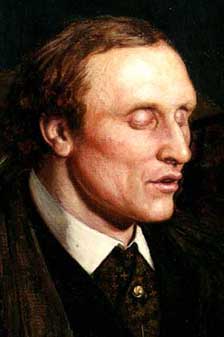| Profile | Major Works | Resources |
Henry Fawcett, 1833-1884.
English Classical economist, and professor of economics at Cambridge University.
Although blinded in a shooting accident with his father in 1857, at the age of 25, Fawcett nonetheless went on unabated. A fellow of Trinity Hall, Cambridge, and member of the Political Economy Club since 1861, Henry Fawcett carved out a reputation as a skilled debater.
A faithful enthusiast of John Stuart Mill, Henry Fawcett was one of the last Classical economists. His 1863 Manual was a popularization of Mill's work, and was quite successful as a textbook. That success, and the testimonials of numerous fellow economists from the Cub (e.g. John Stuart Mill himself, W.T. Thornton, William Newmarch, Herman Merivale, G.W. Norman, J.E. Thorold Rogers, among others), allowed Henry Fawcett to beat out stiff competition (H.D. Macleod, Leonard Courtney and J.B. Mayor) to be elected the first permanent Professor of Political Economy at Cambridge University in November 1863, succeeding the long-serving George Pryme.
Fawcett would preside for two decades as professor at Cambridge, until his death in in 1884. Economics was then part of the "Moral Science Tripos" (founded in 1848), which it shared with moral philosophy (taught by Sidgwick) and logic (or "mental philosophy"). By the terms of the professorship, Fawcett gave an annual series of lectures at Cambridge. Never quite the theorist, Fawcett considered theoretical matters essentially already settled by others (i.e. Mill), and preferred to focus his lectures on applied topics of the day. Some of the lectures would later emerge as published tracts. .
Fawcett's tenure at Cambridge was competent but unremarkable. Fawcett was diligent in teaching "pass" students (who were compulsorily required to attend his lectures), but never bothered to cultivate disciples, or a school of followers, or enter into polemics with his colleagues.
While professor, Fawcett found time to get elected to parliament, serving as a Liberal MP from 1864 to 1884. He also served in the British cabinet as Postmaster General from 1880 to 1884. He was renowned as a radical political leader and educational reformer. After his death, Fawcett was succeeded in his Cambridge chair by the marginalist Alfred Marshall in 1884.
It was Mill who introduced Henry Fawcett to Millicent Garrett. Despite a substantial age difference, it was an intellectual match and Henry and Millicent were married in 1867. Millicent was vital in assisting blind Henry with his duties both as a member of parliament and as an economics professor. Henry and Millicent's daughter, Philippa Fawcett, would go on to be come the first woman to top the Mathematical Tripos at Cambridge (in 1890).
|
Major works of Henry Fawcett
|
|
HET
|
|
Resources on the Fawcetts
|
All rights reserved, Gonšalo L. Fonseca

